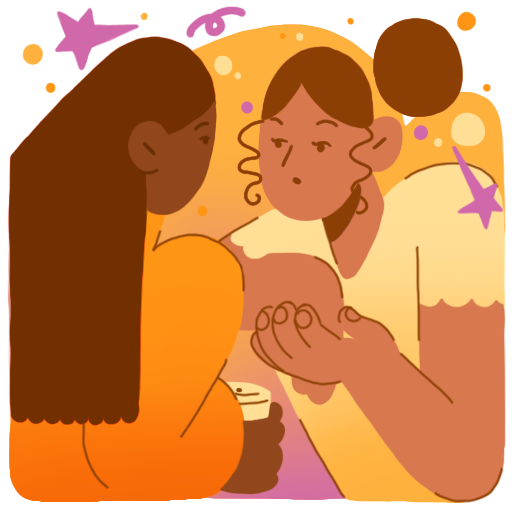What is IPT?
IPT stands for interpersonal therapy. It is a form of evidence-based psychotherapy designed to improve the quality of a patient’s interpersonal relationships and social functioning in order to help reduce their distress – this is based on interpersonal theory and psychosocial research on depression. In essence, IPT helps people communicate with others and enables them to address the problems that are contributing to their depression.
IPT focuses on the difficulties in relationships with other people who are important to you and can be effective in the treatment of depression commonly triggered by disputes in roles. It recognises that depression is likely to both spark relationship problems and to also serve as a strong contributory factor in maintaining them.

How IPT Can Help You
We will use IPT strategies to help you try out new communications and assertive behaviours. The treatment strategies used with clients include role play during the sessions to help them test out new communications skills to prepare them to achieve a successful outcome.
Couples may find themselves with various ongoing challenges that need to be addressed, such as tension over roles in the relationship, personal or interpersonal shortcomings, grief or other transitions between different phases of life, and various other conflicts that undermine the health of their marriage and relationships. We have successfully used IPT to treat depression in unilateral couples therapy with good outcomes. IPT is recommended by the National Institute for Health and Clinical excellence (NICE). This is an independent body that provides evidence-based treatment recommendations to health care professionals and other stakeholders. Some of the clients we have worked with who have found IPT beneficial came to us whilst experiencing difficulties in their relationship with a marital or domestic partner, a boss, parent, friends, or their child among other relationships. IPT is not burdened by complicated explanations about why these problems occurred. Instead, it focuses on the day-to-day difficulties you may be experiencing in keeping relationships going when you are depressed. IPT works by helping you to associate the feelings of depression with the interpersonal interactions between you and your relationship with significant others.
What is IPT used to treat?
Most commonly, IPT is used for depression. However, it can also help treat bipolar disorder, borderline personality disorder, eating disorders and more. IPT provides strategies to help with four key areas:
IPT Case Study 1
Emma, a 45-year-old care assistant with three children, came to therapy when she started struggling after starting a new job. Her depression was triggered by a role dispute with her husband. She felt that she did not get help around the house and felt constantly criticised by him for her cooking and manner of dressing. Emma noticed that her mood kept getting worse. She said her return to work was motivated by being criticised by her husband for not contributing to the household income. Emma felt her husband had never appreciated the time and energy she invested in bringing up the children, feeding, cooking, the school rounds, and taking them along to other appointments. All the constant criticism, coupled with her new
Job made Emma feel overwhelmed and unappreciated. Her marriage started to suffer. Emma complained of loss of libido, her sexual relationship with her husband came to a halt. Emma said things got so bad that they barely spoke to each other. Emma felt guilty when she noticed she had been irritable and shouting around the children. She said she noticed she started to overeat, having problems falling asleep and staying asleep and lacking energy and motivation to do things.
IPT helped Emma to understand the problems in the context of depression and recognised that the difficulties and the symptoms she had described were not her fault. IPT strategies helped her to recognise that the heart of the issue.
The dispute left her feeling unappreciated and overworked. We worked together to identify strategies that helped Emma to discuss her feelings with her husband. This resulted in better communication when they were both able to express their feelings in a constructive way. At the end of therapy Emma reported that they have been able to spontaneously plan and spend time away as a couple and sometimes go away as a family doing fun activities together. At the end of a 16-week treatment, Emma said their sexual relations improved and her depression started to lift. She said she got more help from her husband and managed to keep her part-time job.
IPT Case Study 2
John was 68 years when he came to treatment after his wife passed away 5 months earlier following a long illness. He was a retired lecturer. John had stopped being active and meeting up with friends. He said he had lost interest in playing tennis. John complained of sleep difficulties not being able to fall asleep and waking up in the early hours of the morning with feelings of guilt about not doing enough to save his wife. He said he had missed his wife and was tearful at the start of our sessions. He said he had lost appetite and had also lost some weight.
We used IPT to help John recognise that the changes he was reporting were consistent with depression and that it was not his fault. John successfully completed a 16-week IPT treatment. At the end of therapy John reported improvement in his quality of life. He started to consider new ways to meet people with similar interests in tennis, biking and walking. John started to see some old friends again. John decided to use optional two monthly booster sessions to help consolidate the gains he has made in therapy.`
What to expect during your sessions
We’re really looking forward to working with you and for each session that we spend in the therapy room together, we will be completely committed to helping you discover new ways of thinking and being that will really help you.
In return, we ask you to be open to new ideas and to be willing to learn some new skills. Therapy is not always easy. Like everything that improves your lives, this process will take time and effort to get you where you want to be. We will agree together “tasks” for you to do in between sessions that relate to what you are going through. These might be something like practicing activities you find difficult or writing down important events or feelings to bring to the next session. This homework is one of the most important things that will help you feel better.
Please take a moment to think about this commitment to therapy with your time and energy. If your minds are saying “We don’t have the discipline/motivation/ willpower”, don’t worry – let’s talk about that together. We will be with you every step of the way, and we will go at a pace that works for you.




